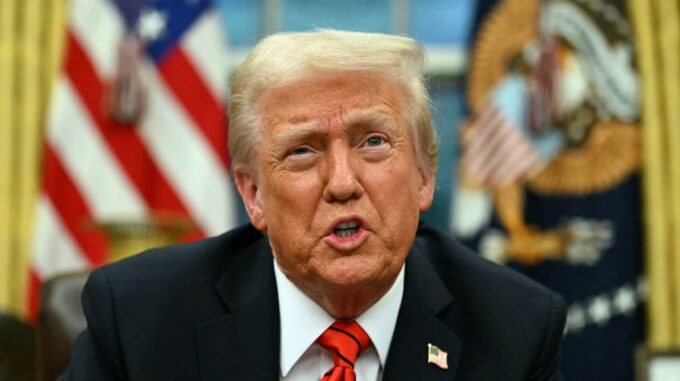After the recent strikes on Iran’s nuclear infrastructure, Donald Trump once again expressed ambitions to change Tehran’s political course

Following a series of missile attacks on key facilities of Iran’s nuclear program, the United States has moved to open political statements regarding Iran’s future. Former U.S. President Donald Trump, who remains one of the country’s most influential political figures and an active commentator on international affairs, drew attention with his unconventional remarks on the social media platform Truth Social. There, he hinted at the possibility of a radical regime change in Tehran, asserting that the current authorities are incapable of restoring the country’s greatness. "It is politically incorrect to use such a term as 'regime change'," Trump wrote, "but if the current Iranian regime cannot restore Iran to a status of a fully developing and great nation, why not change it? MAGA!!!" This statement underscores his radical intentions and political rhetoric. The history of the conflict is rich with dramatic events. On the night of June 13, Israeli forces carried out a preemptive strike against Iranian nuclear facilities—targets meant to supply Iran’s nuclear program and military infrastructure. These actions by Israel served as a signal of increasing tension, which is filling the region with growing unrest. Against this backdrop, on June 22, around 2:30 AM Iran time, the U.S. Air Force launched missile strikes on three key Iranian nuclear sites — Fordo, Natanz, and Isfahan. These sites are considered critical for Iran’s nuclear program, and the strikes aimed to halt or at least freeze the potential development of nuclear weapons. U.S. forces carried out this operation with maximum precision, seeking to reduce Iran’s nuclear capacity. After successfully completing the attacks, former President Trump issued a sharp statement. He called on Tehran to immediately agree to a peace treaty, emphasizing that if they refuse, the U.S. will take more radical measures. "If Iran is not ready for peace, future airstrikes will be much more extensive," Trump warned, highlighting his intention to deploy even more advanced military means in the fight against Iran’s nuclear program. He also warned Tehran against any acts of retaliation, stressing that the U.S. will not ignore attempts to respond to their offensive actions. Overall, the situation around Iran remains tense, with rhetoric from both sides being sharp and provocative. A scenario is emerging where any new phase of military or diplomatic actions could lead to a full-scale escalation of the conflict in the region. U.S. and Israeli policies regarding Iran’s nuclear program remain key destabilizing factors, and Trump’s words at this time serve as another signal toward radical steps or diplomatic breakthrough, depending on how events unfold.

